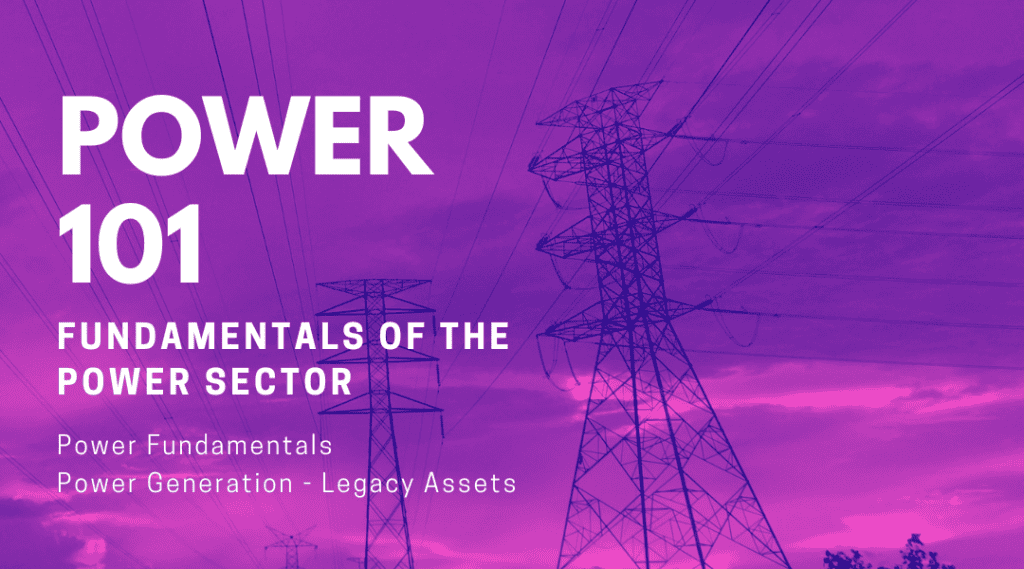Whether or not power generation is a good career path for you depends on your interests, skills, and goals.

Whether it’s oil and gas, power, or renewables that is your chosen career path, our e-learning courses can help you get a leg up on the competition and get your food in the door.
We often hear from learners who successfully use our courses to prepare for the interview process. After all, you’re using the same courses that companies themselves use to prepare their teams.
As this student passed on:
I would like to thank you for your brilliant Oil 101 materials. I did use it to prepare for the recruitment process, and managed to take a new role in the oil and gas industry!
Get started with our Energy 101 courses today!
Here are some factors to consider:
- Job prospects: The demand for workers in the power generation industry is expected to grow in the coming years as the industry continues to adopt new technologies and modernize infrastructure. There are a range of jobs available in power generation, from technical and engineering roles to administrative and customer service positions.
- Potential earnings: Salaries in power generation can be competitive, particularly for technical and management roles. However, salaries can vary widely depending on the specific job and location.
- Education and training: Depending on the role, a degree in engineering or a related field may be required. Certifications and specialized training may also be necessary to advance in certain roles.
- Work environment: Jobs in power generation can be diverse, from office-based work to field-based work in power plants and other facilities. Depending on the role, there may be exposure to noise, chemicals, and other hazards.
- Industry trends: The power generation industry is evolving rapidly, with new technologies and regulatory changes driving changes in the industry. It’s important to research industry trends and projections to assess long-term job prospects.
- Personal interest: If you are interested in the power generation industry, have a passion for engineering or technical work, and enjoy problem-solving, then a career in power generation may be a good fit for you. However, if the industry does not align with your interests, you may find it difficult to stay motivated and excel in the field.
Overall, power generation can be a rewarding career path for those with the right skills and interests.
It’s important to research the specific roles and industries within power generation and consider your personal goals and preferences before pursuing this career path.
What jobs are available in power generation?
Power generation offers a wide range of job opportunities in areas such as engineering, operations, maintenance, and management.
Here are some examples of jobs available in power generation:
- Electrical Engineer: Electrical engineers design and maintain the electrical systems that power homes and businesses. They may work on projects related to power generation, transmission, and distribution.
- Plant Operator: Plant operators are responsible for the operation of power generation equipment, such as turbines, boilers, and generators. They monitor equipment performance, troubleshoot problems, and ensure compliance with safety and environmental regulations.
- Maintenance Technician: Maintenance technicians perform preventive and corrective maintenance on power generation equipment, such as turbines, generators, and electrical systems. They may also perform repairs and upgrades to keep equipment running efficiently.
- Project Manager: Project managers oversee large-scale projects related to power generation, such as construction of new power plants or upgrades to existing infrastructure. They coordinate project activities, manage budgets and timelines, and ensure compliance with regulatory requirements.
- Environmental Compliance Specialist: Environmental compliance specialists ensure that power generation facilities comply with environmental regulations related to air, water, and waste management. They may also develop and implement programs to promote environmental sustainability.
Overall, power generation offers a range of job opportunities for individuals with diverse skills and backgrounds.
These jobs often provide opportunities for career growth and advancement, as well as the satisfaction of contributing to the essential services that power communities and drive economic growth.
Do jobs in power generation pay well?
Jobs in power generation can vary in terms of pay, depending on the specific role, location, and level of experience.
However, here are some examples of median annual salaries for common jobs in the power generation industry, according to data from the U.S. Bureau of Labor Statistics (BLS):
- Electrical Engineer: $103,390
- Power Plant Operator: $81,990
- Maintenance Technician: $53,410
- Project Manager: $96,930
- Environmental Compliance Specialist: $73,230
It’s important to note that salaries in power generation can vary widely depending on the specific company, location, and other factors.
Additionally, some roles may offer opportunities for overtime pay or other incentives that can increase earnings.
Overall, power generation jobs can offer competitive pay and opportunities for career growth and advancement.
Be sure to check out our resources on ‘What do Energy Jobs Pay’ and ‘Is Energy a Good Career Path’ for more information.
Related Resources
Power 101
What is a Nuclear Power Reactor Operator
Watts, Kilowatts, Megawatts, Gigawatts
Jobs Data
Global Energy Talent Index (GETI)
US Energy & Employment and Jobs Report (USEER)
Career Path in Energy Articles
Is Oilfield Services/Equipment a Good Career Path
Is Oil and Gas Production a Good Career Path
Is Electric Utilities a Good Career Path
Is Power Generation a Good Career Path